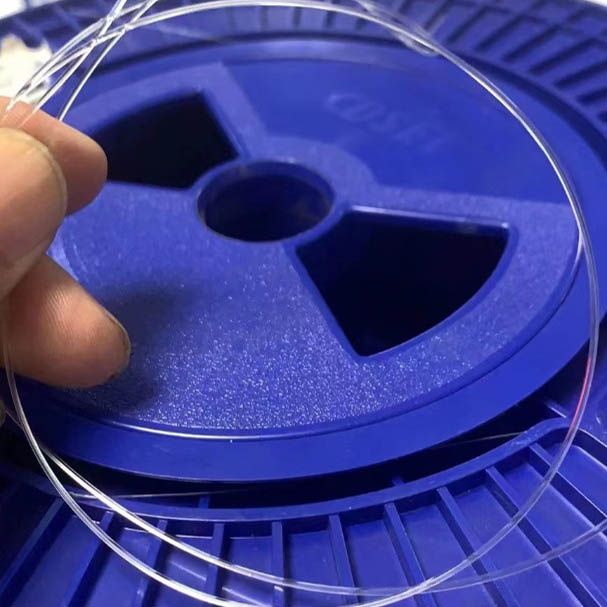BASF’s Elastollan N contains 50% renewable raw material.
Edited by Lilli Manolis Sherman Fiber Optic Adapter

A new biobased TPU for a broad range of applications is available from BASF. Elastollan N is a 50% corn-based bioplastic and was developed as a drop-in replacement for the company’s Elastollan TPU for extruding cable sheathing, hoses, belts, films and profiles, and can also blow molded and injection molded. In terms of its life cycle assessment, the biobased TPU is said to achieve an improvement in CO2 footprint of approximately 15%. It also boasts the same processability and extrusion profiles achieved with traditional Elastollan TPU.
Cable manufacturer LAPP (U.S. office in Florham Park, N.J.) recently unveiled what is said to be the first ethernet cable with biobased sheathing. The Etherline FD P Cat.5e for industrial ethernet has been part of the LAPP portfolio for a long time and is ideal for patch cable applications and also for cable chains. Now the product line has replaced fossil fuel derived Elastolan TPU with the more sustainable variant. Step-by-step, LAPP is also aiming to further expand its portfolio of biobased sheath materials. Said U.I. Lapp GmbH’s head of cable products development Alexander Terpe, “Using plastics from rapidly renewable raw materials with an organic basis is a great way for us to reduce the need for plastics from fossil raw materials and at the same time reduce the carbon footprint of our products.”
The process is considered simple. But things aren’t always as they seem.
Material behavior is fundamentally determined by the equivalence of time and temperature. But that principle tends to be lost on processors and designers. Here’s some guidance.
Molders should realize how significantly process conditions can influence the final properties of the part.

FTTx © 2023 Gardner Business Media, Inc. Privacy Policy [Log On]